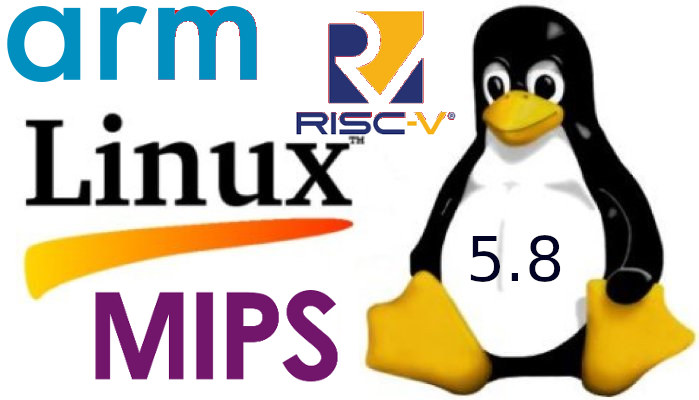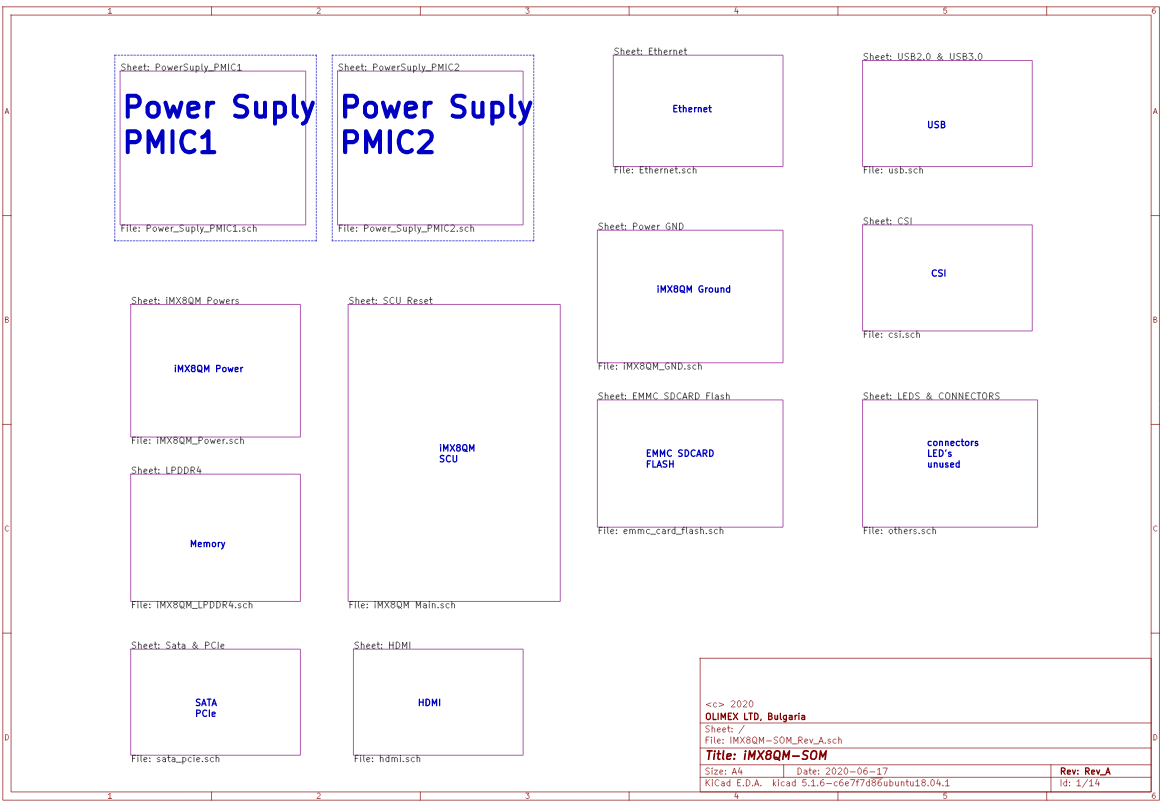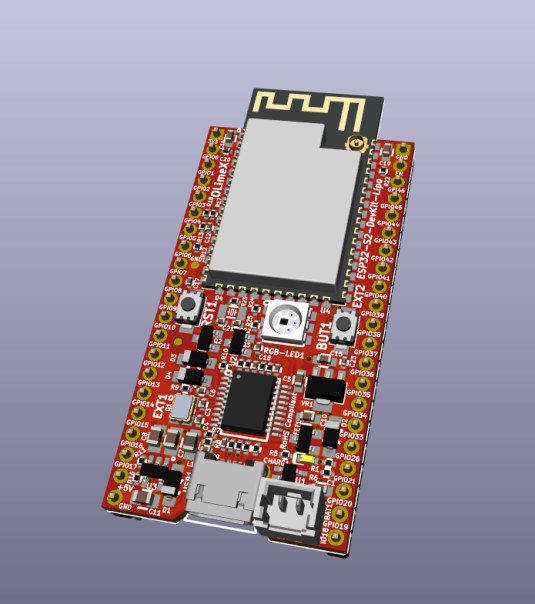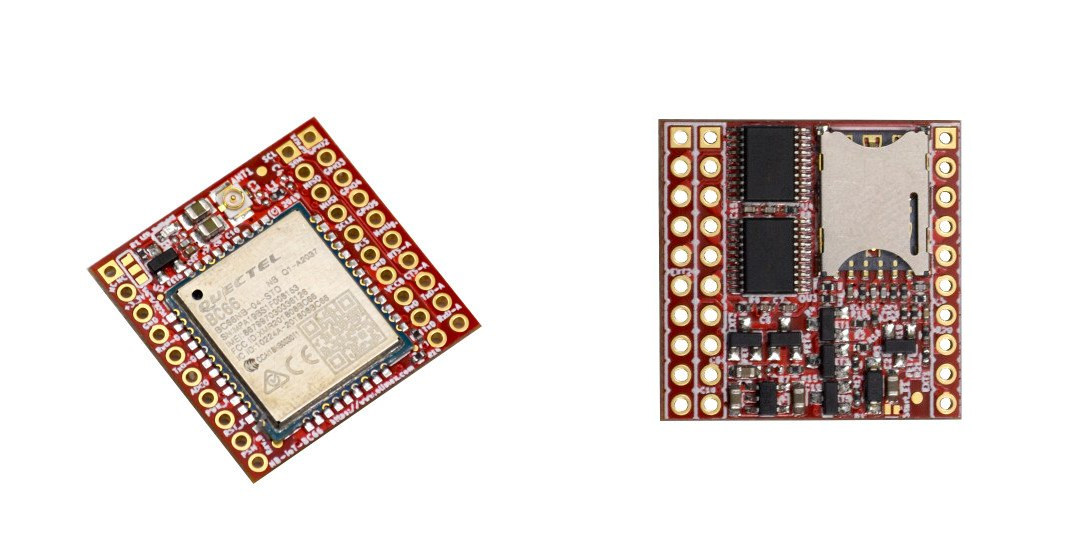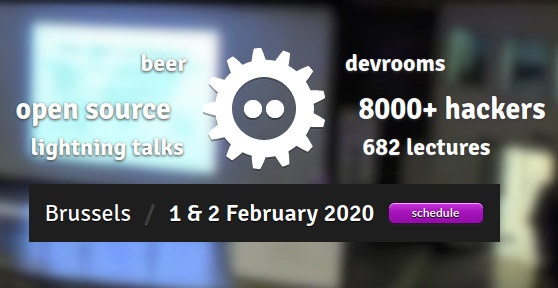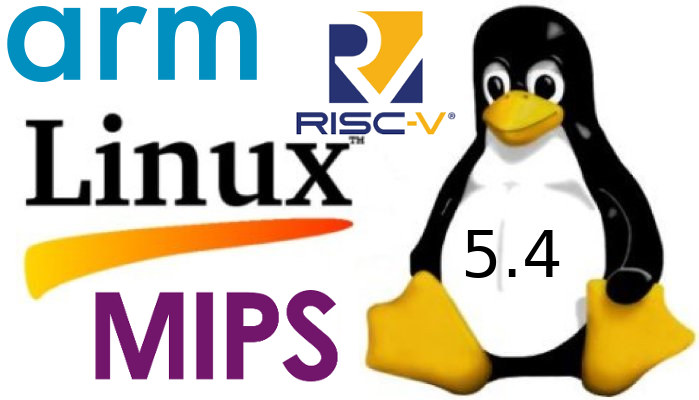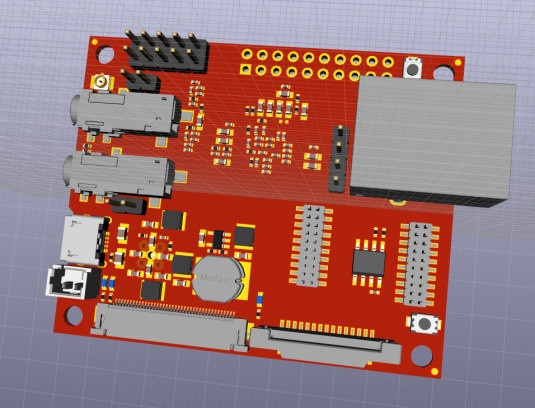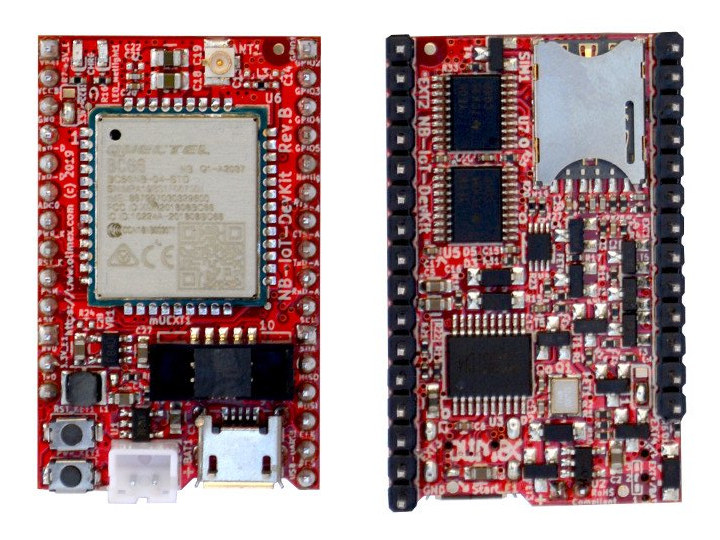Linus Torvalds has just released Linux 5.8: So I considered making an rc8 all the way to the last minute, but decided it’s not just worth waiting another week when there aren’t any big looming worries around. Because despite the merge window having been very large, there really hasn’t been anything scary going on in the release candidates. Yeah, we had some annoying noise with header file dependencies this week, but that’s not a new annoyance, and it’s also not the kind of subtle bug that keeps me up at night worrying about it. It did reinforce how nice it would be if we had some kind of tooling support to break nasty header file dependencies automatically, but if wishes were horses.. Maybe some day we’ll have some kind of SAT-solver for symbol dependencies that can handle all our different architectures and configurations, but right now it’s just a manual […]
Ignitial Tukhla High-End Open Source Hardware NXP i.MX 8QuadMax SBC in the Works
[Update: The European company that initiated the project is Ignitial based in the west of France. So while we refer to the board as Olimex Tukhla in the post, it will be offered as Ignitial Tukhla once it becomes available] Most open-source hardware Arm Linux SBCs are optimized for cost, and there are few higher-end boards with extensive connectivity designed for professionals. Beagleboard X15 would be one of the rare examples currently available on the market, but it was launched five years ago. One European company noticed the void in this market and asked Olimex to develop a high-end open-source Linux board with a well-documented processor. They ruled out RK3399, and instead went Olimex Tukhla SBC will be powered by NXP i.MX 8QuadMax, the top processor of i.MX 8 family with two Cortex-A72 cores, four Cortex-A53 cores, and two real-time Cortex-M4F cores. As you can see from the screenshot above, […]
Olimex ESP32-S2-Devkit-LiPo WiFi Board Consumes as Little as 2uA in Sleep Mode
When we covered ESP32 powered TTGO T-Watch-2000 smartwatch this week-end, people noted that with a 350 mAh battery, the watch would last about 3.65 days considering a 4mA drain with the screen always off, WiFI and Bluetooth off, and around 65mA when the screen is on good for about 5 hours of continuous use without Bluetooth nor WiFi. But it’s possible to make a much more-efficient ESP32-S2 Wifi board, as demonstrated by Olimex with their upcoming ESP32-32-Devkit-LiPo based on ESP32-S2-Saola-1 with circuitry to support LiPo batteries. They designed the board with an ultra-low-power power supply circuit which makes current consumption during sleep only 6uA, 4 of which are due to the battery measurement resistor divider, meaning the board should consume only 2uA in sleep mode or about 10 times less than other ESP32 Olimex boards. When reviewed Qoitech Otii power measurement & DAQ tool, we also noted power consumption could […]
Olimex Launches a Breakout Board with Quectel BC66 NB-IoT module
Quectel BC66 NB-IoT module is found on a few development boards such as Olimex NB-IoT DevKit, works worldwide – at least where NB-IoT networks are deployed -, and can be programmed with Arduino or PlatformIO. Olimex has now designed a breakout board fitted with Quectel BC66 module for people wanting a smaller footprint (26x26mm) and/or integrate the module easily with their own hardware. Olimex BC66 breakout board’s features and specifications: NB-IoT Connectivity Quectel BC-66 with worldwide GSM bands coverage 25.5 kbps uplink and downlink nano SIM card slot u.FL antenna connector + optional antenna I/O Expansion – 3x 10-pin header either unpopulated or fitted with male headers; Level shifters for 5x GPIOs, I2C, SPI, UART Misc – Status LEDs Power Supply – Dimensions – 26×26 mm As with other LPWAN modules, this module/board would typically be found in remote electricity, water and gas meters, smart city (parking/lighting) management systems, healthcare […]
Some Interesting Talks from FOSDEM 2020 Schedule
We wrote about IoT devroom call for proposals for FOSDEM 2020 a little while ago, and as the free open-source developer meetup is getting closer, FOSDEM 2020 organizers released the schedule. So I’ll look at some of the talks in the relevant devrooms such as the Internet of Things, hardware enablement, Embedded, Mobile and Automotive, as well as RISC-V and others to compose my own little virtual schedule for the 2-day event. Saturday, February 1 10:30 – 10:50 – How lowRISC made its Ibex RISC-V CPU core faster – Using open source tools to improve an open-source core – by Greg Chadwick Ibex implements RISC-V 32-bit I/E MC M-Mode, U-Mode, and PMP. It uses an in-order 2 stage pipe and is best suited for area and power-sensitive rather than high-performance applications. However, there is scope for meaningful performance gains without major impact to power or area. This talk describes work […]
Linux 5.4 Release – Main Changes, Arm, MIPS & RISC-V Architectures
Linus Torvalds has just announced the release of Linux 5.4: Not a lot happened this last week, which is just how I like it. And as expected, most of the pull requests I got were for the 5.5 merge window, which I’ll obviously start working through tomorrow. What little there is here is mostly some networking updates (mix of network drivers and core networking), and some minor GPU driver updates. Other than that it’s a small collection of random other things all over. The appended shortlog is small enough that you might as well just scroll through it. Anyway, this obviously opens the merge window for 5.5. It’s not ideal timing with Thanksgiving week coming up, but it hopefully shouldn’t be too much of an issue. If I fall behind (not because I’m all that big of a fan of the indiscriminate and relentless turkey-killing holiday) it’s because we’ve got […]
Olimex OSHW Allwinner S3 IP Camera Board in the Works – Feedback & Suggestions Welcomed
Allwinner S3 Arm Cortex-A7 processor is designed for dual-camera systems and embeds 128MB RAM. It looks to be an evolution of the older Allwinner V3s chip that came with 64MB RAM and is software-compatible with the older camera SoC. We reported about the new processor and an Allwinner S3 development board last year, but Olimex has started working on an open-source hardware IP camera board based on the processor and is asking for feedback from customers and the community at large. Preliminary specifications: SoC – Allwinner S3 Cortex-A7 @ 1.2GHz with 128MB DDR3 RAM at 1333 MHz Storage -MicroSD card slot, configuration EEPROM, optional NAND/eMMC/SPI Flash on socket Camera I/F MIPI camera connector with RPi pinout Parallel CSI camera connector Display – LCD connector for LCD-OLinuXino 4.3″ to 15.6″ displays Audio – Audio in and out via 3.5mm audio jacks Connectivity Fast Ethernet with PoE option WiFi / BT module with […]
Olimex Launches NB-IoT DevKit Based on Quectel BC66 Module for 19 Euros
There are three LPWAN standards currently dominating the space LoRaWAN, NB-IoT, and Sigfox. In a recent presentation, Olimex explains NB-IoT (aka LTE Cat NB1) offers several advantages over LoRaWAN and Sigfox which include: Higher speeds of up to 25.5 kbps (UL/DL) Single GSM base station can handle up to 100 000 NB-IoT nodes Single GSM base station can cover up to 10-100km range in rural environments, and 1 to 10km in urban settings Lasts up to 10 years on a Lithium 3V battery if less than 200 bytes are sent per day The main disadvantage they listed was operator dependence, as you rely on the operator for coverage, and anything related to connectivity. In Bulgaria in particular, they found out it was not easy to get an NB-IoT SIM card activated, and the operator may shut you off without notice. For reference here in Thailand, last time I checked I […]


